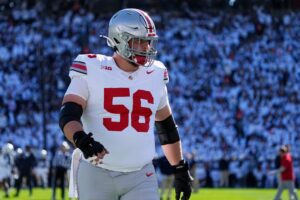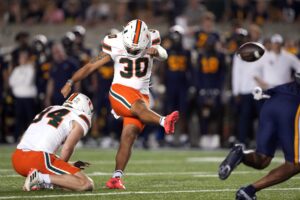A huge announcement was made on Thursday about the new postseason bowl featuring the top 100 HBCU prospects starting in 2022. The game is a win-win for all HBCU schools around the country. One of the largest obstacles facing HBCU schools to date has been the lack of exposure. Now, this new opportunity is just one important step to get a chance to with a national audience. The HBCU Legacy Bowl will be played one week after the Super Bowl during Black History Month. It will be aired on the NFL Network. Surely, this gives the impression the NFL is making an effort to involve HBCU schools and improve exposure nationwide.
HBCU Legacy Bowl to Kickoff in New Orleans in 2022
2020 was an extremely difficult time for many universities because of the pandemic affecting the play of all sports. Football included. The pandemic impacted not only sports — but the communities as a whole. The lack of resources was already drying up at smaller schools, including many of the HBCU universities that count on face-to-face meetings. In addition, the ongoing battle of providing necessary funding since the 1970s still exists today. And Honestly, when the rules changed for integration brought unexpected outcomes. The laws were changed to give opportunities for young athletes to open up avenues that were closed for a long time.
However, the changes ended up posing a complex test for HBCU schools, which were ill-prepared for the impacts for years to come. Floyd Kerr, the former athletic director at Morgan State talked with ESPN in detail about the countless opportunities that fell by the wayside during and after the new rule changes.
Kerr talked to ESPN back in 2007 on this extensively. “When integration hit and majority institutions began to extract from HBCU talent pools, HBCU’s did not counter that by adjusting to compete on the resource side,” said Kerr. “But the schools that became black colleges’ competitors, they recognized that to have excellence, from a competitive standpoint, you had to put greater resources in.”
Certainly, the underfunding didn’t just happen yesterday. This is an ongoing dilemma facing HBCU schools, all the way up to the current day. This same problem occurs now and most of the 20th century.
HBCU Lost Plenty of Standouts to other Schools
The former coach at Winston-Salem and North Carolina A & T coach and player Bill Hayes reflected on the tireless efforts of overcoming various challenges throughout his career. In addition, Hayes became the first African-American coach in the ACC at Wake Forest in 1973. Hayes got inducted into the North Carolina Hall of Fame among many others. “There was no such thing as a top black student-athlete going to North Carolina, South Carolina, or Clemson or Virginia Tech,” said Hayes to ESPN.
These opportunities didn’t exist at the time. The HBCU schools were the only place for athletes like Bill Hayes to go to. And this is how it was. The change did come eventually. Schools started to recruit black athletes, and in doing so, took away an abundance of talent from the HBCU pipeline. Although this may be true, all this happened before money became a driving force of trying to lure athletes with state-of-the-art facilities. As well as the promises of big-time television’s obsession of promoting sports 24 hours a day –365 a year.
HBCU Exposure to Grow with the NFL Support
The complexity of competing in Division I football started with players battling on the field to win a game. But more importantly, the real battle became the never-ending pursuit of the all-mighty green dollar.
And money continues to rule the hierarchy in college football. This could all change in the near future when players start to see the benefits of endorsements to make money while being in school. All these changes could catapult change in the balance of power for years to come. It’s still too early to know how these changes will impact the HBCU schools. However, the future does have the building blocks needed to cause permanent change and benefits to the HBCU schools.
Either way, the HBCU Legacy Bowl is a welcome start to hopefully something bigger. Exposure is something needed for these schools. And exposure is hard to get these days without money.






